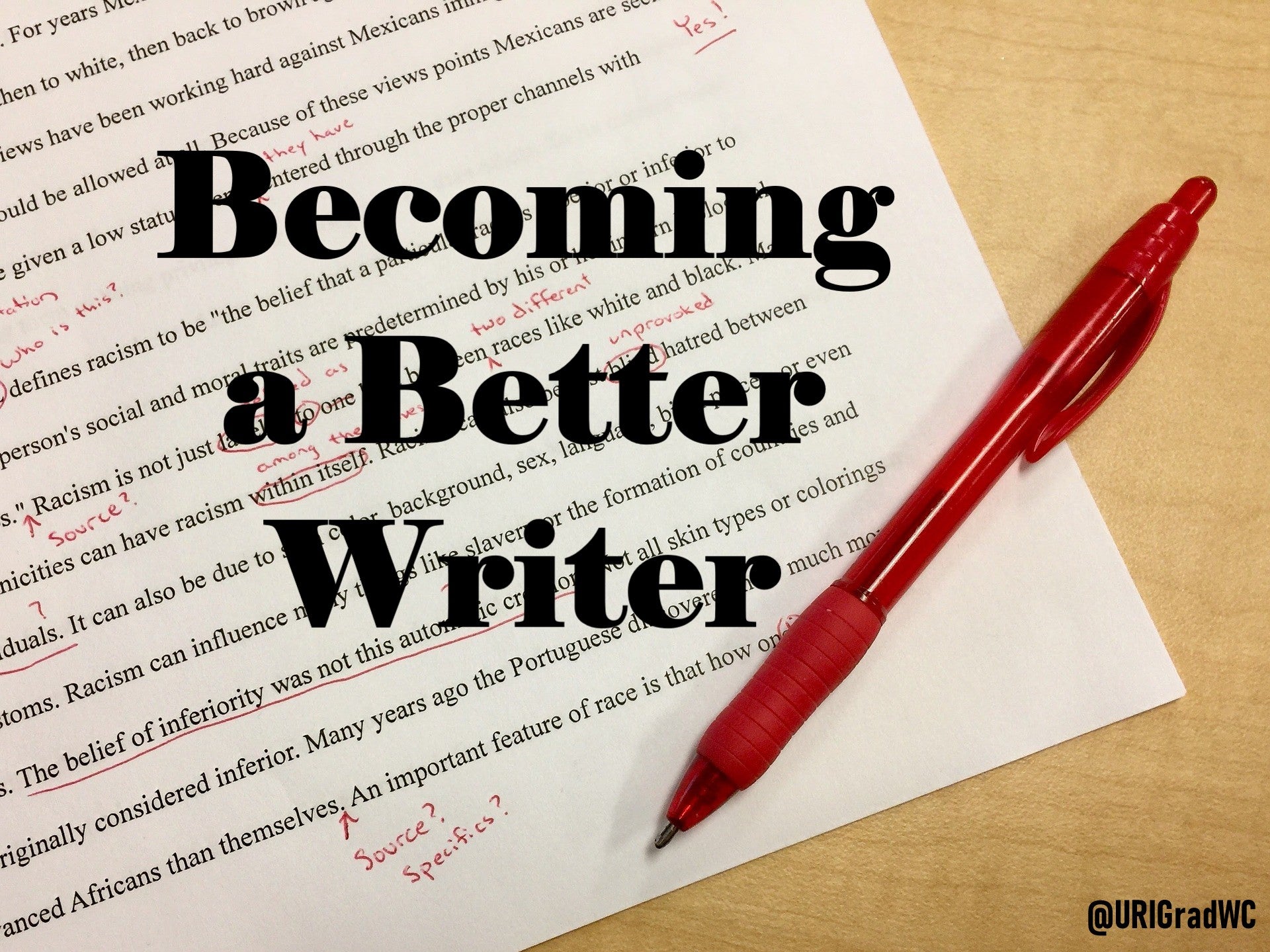Looking to improve your writing skills? Follow these helpful tips to assist you through your writing process.
- Take the time to brainstorm. Brainstorming is an undervalued, but important first step of the writing process. While you’re brainstorming, you should establish your audience, the focus of your paper, and your main argument. This will help direct you when it is time to write your first draft. Outlining your paper can also be considered a form of brainstorming.
- Create a bad first draft. This may sound crazy, but a first draft is not supposed to be perfect. Be less concerned about editing while writing your first daft. Use your first draft as an opportunity to put your thoughts on paper. Then concern yourself with editing after you have all your thoughts written down.
- Accept constructive criticism. Yes it may be discouraging to see abundant edits from your advisors, but consider those edits tips that will help you become a better writer. Criticism you receive can help will your future writing and help to refine your writing style.
- Write every day! We often use the excuse, “I don’t have time.” But even setting aside 30min a day to write could really help to improve your writing. It will create a routine that will make writing a less daunting task.
- Use the thesaurus. The thesaurus and the synonyms tool can help to improve your vocabulary and make your writing sound less repetitive.
- Read your text aloud. When reading your papers in your head, you may overlook some mistakes. Reading aloud will help to catch spelling and grammatical errors you may not have noticed. It will also give you the opportunity to hear how your writing flows, and make adjustments where necessary.
- Avoid wordiness. Take out unnecessary words. Create clear and concise sentences.
- Be careful with punctuation marks. Pay special attention to the placement of periods and commas because these punctuation marks control the flow of your writing. Using them improperly could lead to confusion when reading your papers.
- Take breaks from your papers. After working on a paper for a long time, it helps to step away from it for a day or two. Then you’re able to return to the paper with fresh eyes, which improves the writing and editing process.
- Practice peer-review. Ask your friends or colleagues to read and edit your writing. This is particularly helpful when you’re not ready to send a draft to your advisor, but would still like someone to look over your work. Having new eyes on your paper will help to identify issues that you may have overlooked. You can also determine whether your writing can be understood by a broader audience. Edit your colleagues writing as well. You may witness writing techniques that you’d like to adapt to your own writing.
- Edit your old papers. This will help to polish your writing style and avoid making similar mistakes from the past. It can also be a large confidence booster to realize how far you’ve come as a writer.
- Visit the Graduate Writing Center at URI! Making time to see a tutor will help you get better prepared with your writing projects and grow in your confidence as a writer. All graduate students enrolled at URI can visit the GWC for free. Tutors will work with you at any stage in the writing process and can assist with the tips mentioned here as well as other aspects of writing in graduate school. Make your appointment at mywco.com/URIGradWC.
*Some points from this list were adapted from “34 Writing Tips That Will Make You a Better Writer” by Daniel Scocco from www.dailywritingtips.com
Prepared by Danielle Perry & Carolyn Decker, GWC Writing Tutors. Published December 9, 2019.

